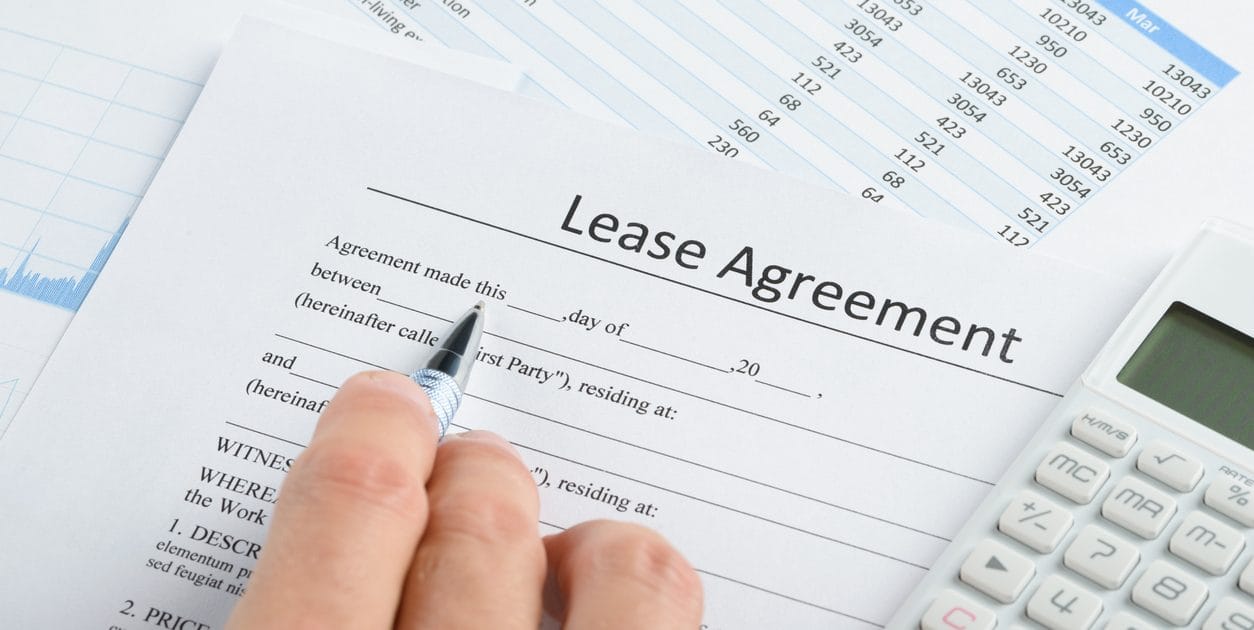How to Report Your Landlord for Negligence
If you rent a house or apartment and feel your landlord is behaving in a negligent manner, you may be able to take legal action. Landlord-tenant disputes can last for years so it’s best to take action sooner than later. Here’s how to report your landlord for negligence as well as when and why you should.

How to Report Your Landlord for Negligence
In California, landlords must adhere to all guidelines and processes outlined in the document California Tenants—A Guide to Residential Tenants’ and Landlords’ Rights and Responsibilities. These rules ensure the rights of both tenants and landlords are respected and preserved at all times.
A landlord’s biggest obligation under state tenancy laws is the duty to keep properties safe, clean, fit, and habitable. This includes taking care of any maintenance issues and/or emergent problems (e.g., insect infestations or mold), providing uninterrupted access to services included in your lease, and treating you with respect.
For a variety of reasons, landlords sometimes fail in their duty of care or behave in a negligent manner. If this happens to you, and you experience some type of loss or harm as a result, you may have the right to file a complaint or sue them in civil court.
Here’s how to report your landlord for negligence.
Defining Landlord Negligence
In legal terms, negligence is any behavior or action taken without proper consideration and care that results in harm to one or more persons. This may be willful (a landlord physically assaults you) or by omission (a landlord fails to maintain electrical work, resulting in a fire that leaves you with severe burns).
The easiest way to determine whether or not your landlord has behaved in a negligent manner is to ask yourself the following four questions:
- Is there an existing landlord-tenant relationship (e.g., do you have a lease or proof that the individual is your landlord?)
- Did the landlord somehow violate guidelines set out under the California Tenants Guide?
- Did their action or inaction directly result in some type of harm to you or someone else in the situation (e.g., a child)?
- Is it reasonable to expect that other upstanding landlords would not have engaged in similar behaviors (or lack thereof)?
If you can answer yes to even one of these questions, you probably have a case for negligence. Still, it is important to note that not every situation automatically qualifies for this designation. This is why it’s always best to speak with a lawyer first.
Related: 10 Reasons to Sue Your Landlord for Negligence
Common Examples of Negligence
Within the scope of landlord-tenant relationships, some forms of negligence are far more common than others. We’ve outlined a few of these here to help you learn how to recognize potential red flags.
Failure to Maintain Habitable Status
This form of negligence occurs when landlords fail to keep units safe and habitable. The most obvious example of this is when landlords fail to repair or maintain a property and/or any included utilities, such as running water. Mold, insect, and rodent infestations, as well as structural problems, usually fall under this category.
Related: Can You Sue Your Landlord for Black Mold?
Discrimination
It is illegal for landlords to engage in any form of discrimination outlined within the Federal Fair Housing Act. In the scope of an existing landlord-tenant relationship, this may manifest as a landlord illegally evicting someone after discovering that they belong to a certain faith or are of a specific race. This also includes using slurs or engaging in hate attacks.
Creating Illegal Lease Clauses
Landlords cannot create clauses within a lease that violate tenancy laws in order to circumvent their responsibilities. For example, a landlord cannot put in a clause that states you agree to waive their duty to make repairs or that you allow them to evict you with no notice.
The Landlord Did Not Disclose Hazards
This one ties in closely with habitability, but often involves issues that are far less obvious. For example, the landlord may intentionally neglect to inform you about asbestos, mold, or lead paint. This creates a situation where you unknowingly put your health and safety at risk.
Entering a Property Without Notice
Landlords must give at least 24 hours notice to enter your property unless there is a true emergency (e.g., a broken pipe must urgently be addressed). If they continually access your property without notice, this is considered negligence in the duty of care. You may have the right to break your lease as a result.
Related: Can a Tenant Refuse Entry to Landlord in California?
Stealing From a Tenant
Landlords do not have the right to keep your items, even if you are evicted and/or leave the property. Instead, they are required to hold your items for a certain period of time before disposing of them. If a landlord takes your items, moves them, damage them, or otherwise disposes of them before then, it is considered theft. You may have the right to file a complaint or even sue for compensation to cover the lost items.
Personal Injury Due to Landlord Negligence
This occurs when you are injured as a direct result of a landlord’s failure in their duty of care. This can happen within your rental unit (e.g., a poorly maintained balcony falling off of the side of the building) or somewhere else on the property (e.g. excessive levels of chlorine in the pool lead to serious burns). This does not include issues of your own making (e.g, you spill water in your apartment and slip on it, breaking your leg).
How and Where to File a Complaint
If you are certain you have a case, your next step should be to connect with an attorney who can help guide you on how to report your landlord for negligence. Going up against a business owner who likely has more than one lawyer on their side isn’t easy, and it is almost never wise to try and handle the situation on your own.
1. Notify Your Landlord
Your next step should be to inform your landlord of the problem in writing. Include a clear explanation of the problem, how it violates tenancy laws and/or puts your health and safety at risk, how you want it resolved, and how soon you expect them to finish the repairs or resolution. Allow at least 30 days for the correction unless the situation urgently requires attention (e.g., electrical and plumbing problems.
Have someone witness and sign the letter before you send it. This will become invaluable later on in court if you need to prove you asked for help.
2. Contact the Los Angeles Housing + Community Investment Department (HCIDLA)
If the issue for which you are seeking action involves habitability or risks to health and safety, the HCIDLA can help. They have the power to intervene by sending someone out to do an assessment and/or legally demanding a resolution.
Head over to this link and enter the property’s address. Note that the form also asks for an Assessor Parcel Number, or APN. If you don’t have this information, simply leave this section blank. Someone from HCIDLA will reach out to you to provide assistance within 24 hours.
3. Contact the County of Los Angeles Department of Public Health
If HCIDLA cannot help, or if the negligence stands to negatively affect the health and safety of multiple people, you may be able to take action by filing a complaint with Public Health. This is one of the best ways to deal with concerns such as green pools, sewage leaks, lack of access to water, trash accumulation and animal infestations (e.g, rats). Public Health also has the ability to send out an inspector and demand corrections or repairs on behalf of tenants.
If all else fails, and you find yourself suffering as a result of the landlord’s negligence, it may be time to file a lawsuit. Always remember that you have rights, including the right to seek compensation when you have been harmed. A tenancy lawyer can help you take your next steps with confidence.
Related: How to Report a Landlord to the Health Department
Conclusion
Now that you know how to report your landlord for negligence, you can now move forward with confidence. It’s important to record your efforts as you attempt to contact your landlord and resolve the situation, as this will help you build a strong case in your favor.
If you’re interested in filing a claim against your landlord, consider contacting a lawyer for help. An experienced tenant lawyer in Los Angeles will help you build your cases against your landlord, guide you through the legal process, and protect your interests.
Get started with a free 15-minute consultation today.
Are you in search for a certified attorney to represent you?
Let us help you find one today!

